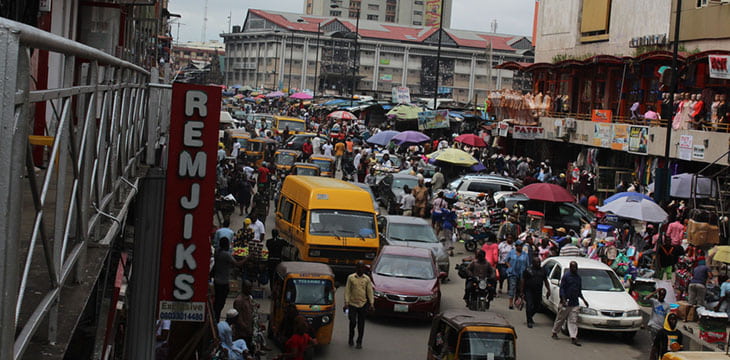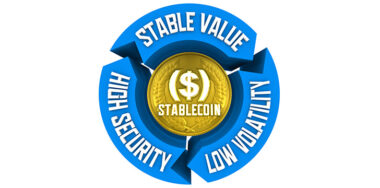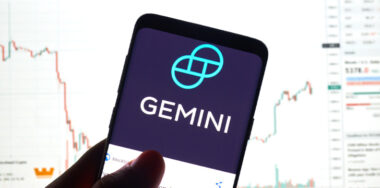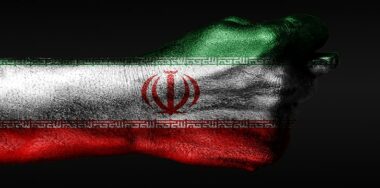Africa’s largest economy has been hard hit by a cash shortage as ATMs across the country run out of money. Nigeria has been replacing its old paper money with new, redesigned currency notes. However, due to inefficiencies in the process, millions of Nigerians have been left to queue for hours just to withdraw $43 from the ATMs. The cash shortage once again proves that Nigeria and most other developing countries are the prime hubs for a Bitcoin revolution.
The Central Bank of Nigeria (CBN) redesigned its 200 naira ($0.43), 500 naira ($1.08), and 1,000 naira ($2.17) notes recently. Since then, it has been exchanging the old paper currency for the new notes, a process that has been hard hit by hitches threatening the West African nation’s economy.
The big challenge is that the process is rushed, Ayokunle Olubunmi tells Associated Press. Ayokunle, who works with Nigeria’s main ratings agency, Agusto & Co., pointed out that commercial banks don’t have enough new cash to give to their clients.
The result is long queues that stretch out for hours on end. As Bloomberg reported, commuters in Lagos and beyond have been left stranded with no cash to pay for transportation back home. Small businesses, which make up the bulk of the economy, and overwhelmingly rely on cash payments, have been the hardest hit. Many have had to shut down as their customers have no money to pay.
The paper currency exchange aims to curb money laundering and promote digital payments. However, according to Ayokunle, forcing digital payments on people is the wrong approach.
“The central bank doesn’t want us to be spending cash; they want us to be doing transactions electronically, but you can’t legislate a change in behavior. You have to make people see reasons and ensure those channels are reliable,” the ratings expert commented.
As Nigerians feel the pinch and have their livelihoods threatened, those at the top believe it’s a small price to pay.
Godwin Emefiele, the CBN governor, said over the weekend that the exercise had seen 80% of the $7.2 billion previously on private hands deposited with financial institutions, which he labels a success.
Finance Minister Zainab Ahmed concurs. “The only sore point is the pain it has caused to citizens,” she says.
Nigeria needs Bitcoin
The cash crunch in Nigeria serves as the latest reminder that the country and many other developing nations need Bitcoin now more than ever.
Nigeria’s central bank’s move is meant to push the 213 million Nigerians to digital payments. This includes electronic payment platforms offered by commercial banks and to its eNaira digital currency. Both have their set of challenges.
As local outlets in the country reveal, the bank-powered platforms crack under the tiniest pressure. Nigerians tried turning to these platforms during the current cash crunch to make payments. However, transactions take hours to process, and in half the cases, they end up failing anyway.
The eNaira’s challenges are well documented. Nigerians have shunned the digital currency, and despite being the largest economy in the continent, the eNaira took over a year to hit $10 million in transaction volume.
What Nigeria needs is peer-to-peer electronic cash that’s not affected by local circumstances. Bitcoin is resilient, and even during a cash crunch in Nigeria, political instability in Ukraine, earthquakes in Turkey and Indonesia, and floods in New Zealand, users can be certain that their payments won’t be affected.
Now reborn as Bitcoin SV, it offers the cheapest, fastest, and most reliable digital payments. BSV has already proven its viability in Africa, with Centbee showing the world just what Bitcoin payments can do. Centbee users can make payments in grocery stores, pay for utilities, and send money worldwide at a click.
Nigeria has already established itself as a global digital assets hub and was ranked 11th globally by Chainalysis in its adoption index last year. The current cash crunch is the country’s wake-up call to push on with Bitcoin adoption.
Watch: Blockchain in Africa
New to blockchain? Check out CoinGeek’s Blockchain for Beginners section, the ultimate resource guide to learn more about blockchain technology.









